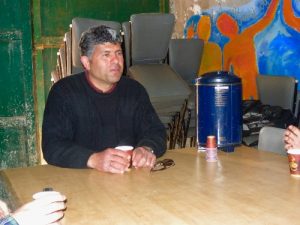HOMILY WEEK 08 02 – Year I
Keep My Commandments
(Sir 35:1-15; Ps 50; Mk 10:28-31)
*******************************************
Yesterday’s gospel was about the attachment of the rich young man to his wealth, and the need for detachment, leaving all to follow Christ. Today the Gospel presents us with the disciples who have left everything, and wonder what their reward will be.
Jesus of course promises them a reward that will be a hundred-fold in this life and in the next, eternal life. I believe that reward will be the peace and joy that is the gift of the Holy Spirit, to be experienced now partially, and in the next life, fully, by those who keep the commandments.
The Gospel ends, however, with a note of caution. To experience this reward, we must be humble, poor, at the end of the line, somehow the last. As Jesus put it, the first will be last and the last will be first.
The first reading helps us understand what being last is all about. It is to keep the commandments of God, starting with the Ten Commandments. An elderly lady was mailing a bible. When asked by the postmaster if there was anything breakable in the package, she replied yes, the Ten Commandments!
The first reading tells us our best offering to God is to keep the commandments. There is actually a progression in the commandments Jesus gave us. The first is to love God with our whole being. The second is to love our neighbour as we love ourselves. For Jesus, this commandment sums up the whole Old Testament – all the Law and the Prophets.
St. Paul, in his letter to the Romans, goes one step further: he claims that one sentence, “to love our neighbour as we love ourself,” sums up the whole bible.
The next progression in the commandments is to love others as Christ has loved us. That raises the bar even higher – not only to love as we love ourself, but to love as Christ has loved us. And of course, Jesus humbly washed the feet of the Apostles, and gave up his life for us on the Cross. To love like that is what this commandment is all about.
Finally, we are to love our enemies and do good to those who persecute us. That is the ultimate test – to be able to forgive those who have hurt and are hurting us. That takes us back to the cross, where Jesus was forgiving those who were crucifying him.

Daoud sharing, Tent of the Nations cave
A group of people who are living these commandments in an extraordinary way are the Palestinian Christian family of Daoud in Israel. They are surrounded by Jewish settlers who are trying to take their land from them in any way possible. They have had huge boulders dumped on their roadway, blocking access to their farm. They are not allowed electricity or water, so they collect rain water and use solar panels. They are not allowed building permits, so they live and work in caves. They have had two hundred of their olive trees cut down, but simply replanted them with the help of others.
Their response to this violence against them is to be non-violent. They refuse to hate, and they refuse to be enemies, because to love enemies is at the heart of their Christian faith. The only reason they are still there is because they have created an international movement called the Tent of the Nations, by which they invite volunteers from other countries to come and observe, learn and teach. They are truly living the readings for today.
The Eucharist is part of Jesus’ non-violent response to the violence directed towards him. It is a meal that empowers us to live the commandments he gave us, in the peace and joy of the Holy Spirit.



